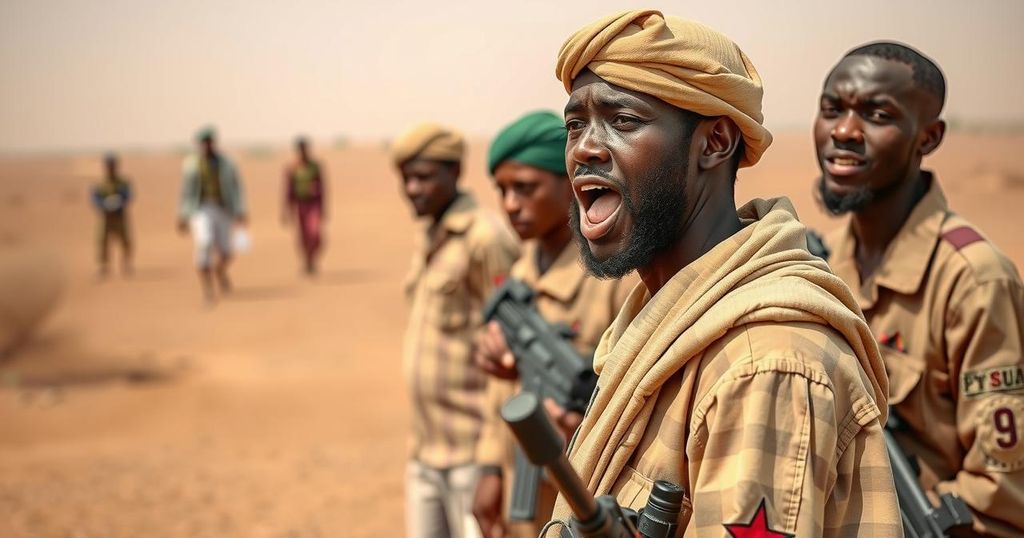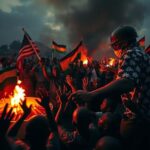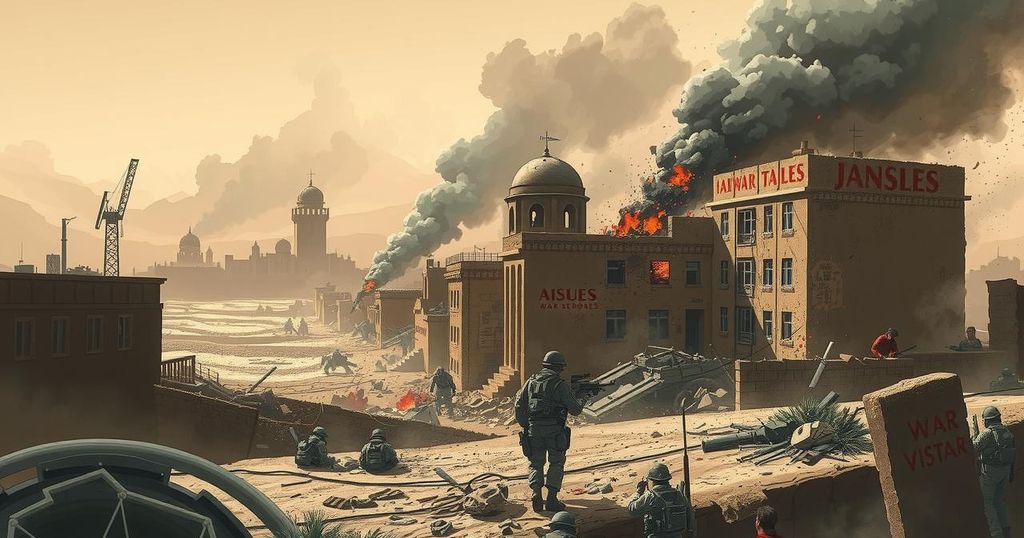Conflicts
“ HEMEDTI, ABDEL FATTAH AL - BURHAN, AFRICA, AL JAZIRAH, ASIA, BASHIR, CHAD, CIVIL WAR, CONFLICT RESOLUTION, DARFUR, EGYPT, HUMANITARIAN CRISIS, HUMANITARIAN ISSUES, MOHAMED HAMDAN DAGALO, OMAR AL - BASHIR, PEACEKEEPING, RAPID SUPPORT FORCES, REGIONAL SECURITY, RSF, SAF, SINGAPORE, SOUTH SUDAN, SUDAN, UAE, UN, UNITED ARAB EMIRATES, WHO
Omar El-Sharif
The UAE’s Influence on Sudan’s Civil War: A Study of Shifting Allegiances
Since April 2023, Sudan is experiencing a violent civil war between the SAF and RSF, leading to severe humanitarian issues and mass displacements. The UAE’s role has evolved, initially supporting the SAF and now shifting toward backing the RSF, complicating the conflict. An urgent international response focusing on humanitarian assistance is necessary to alleviate the crisis and foster negotiations.
Since April 2023, Sudan has been embroiled in a devastating civil war between the Sudanese Armed Forces (SAF) and the paramilitary Rapid Support Forces (RSF). This conflict has led to significant community fragmentation, widespread displacement of civilians, and a dire humanitarian situation. The international community, particularly the United Arab Emirates (UAE), has played a pivotal role in exacerbating these tensions. The UAE’s initial support for the SAF has recently shifted towards the RSF, thereby complicating the conflict further and highlighting the pragmatic nature of foreign involvement in Sudan.
The roots of Sudan’s ongoing turmoil can be traced back to political instability following the ousting of former leader Omar al-Bashir in 2019. This transition to a civilian-led governance model was marred by internal divisions among military leaders, notably General Abdel Fattah al-Burhan of the SAF and General Mohamed Hamdan Dagalo, better known as Hemedti of the RSF. The ensuing rivalry culminated in armed clashes as both factions sought to assert control over the nation.
The ramifications of this war on civilians are catastrophic, so much so that the United Nations estimates over 5.6 million individuals have been forcibly displaced. The humanitarian crisis is further compounded by shortages of food, clean water, and essential medical services. Women and children, particularly those situated in conflict zones, face heightened risk, including sexual violence and exploitation. International organizations have warned of disease outbreaks in refugee camps, attributed to the lack of adequate sanitation and healthcare.
With the UAE’s involvement, the dynamics of the civil war have fundamentally changed. Initially, the UAE supported the SAF to maintain stability and protect its investments in Sudan. However, a recent shift in allegiance towards the RSF indicates a strategic pivot influenced by exclusive access to Sudan’s lucrative gold reserves, which are crucial for funding RSF military operations. The UAE’s actions underscore a broader trend of foreign powers navigating Sudan’s conflict for strategic benefits, regardless of the humanitarian consequences.
Despite ongoing efforts by the United Nations and the African Union to promote peace, the entrenched rivalries and external influences continue to hinder viable negotiations. Experts advocate for an end to military aid and a focus on economic sanctions against gold exports to disrupt the RSF’s funding. By realigning external support towards humanitarian assistance, the international community might alleviate the suffering of millions of Sudanese civilians and steer the nation toward meaningful dialogue and reconciliation amidst this turmoil.
The ongoing civil war in Sudan is rooted in the political chaos following the ousting of long-time dictator Omar al-Bashir in 2019. The country entered a transitional phase characterized by power struggles between military factions, particularly between General Abdel Fattah al-Burhan, leading the Sudanese Armed Forces, and General Mohamed Hamdan Dagalo of the Rapid Support Forces. This conflict has been exacerbated by international involvement, especially from the UAE, which has supported both factions for strategic ends, thereby fueling the ongoing violence and humanitarian disaster.
The civil war in Sudan illustrates the dire consequences of prolonged political instability and foreign interventions driven by resource interests. The alarming humanitarian crisis calls for a reassessment of international strategies, emphasizing the need for humanitarian aid over military support. By redirecting efforts towards alleviating civilian suffering and promoting peace negotiations, the global community can contribute to the restoration of stability in Sudan, ultimately prioritizing human lives above political and economic ambitions.
Original Source: wakeup.sg








Post Comment